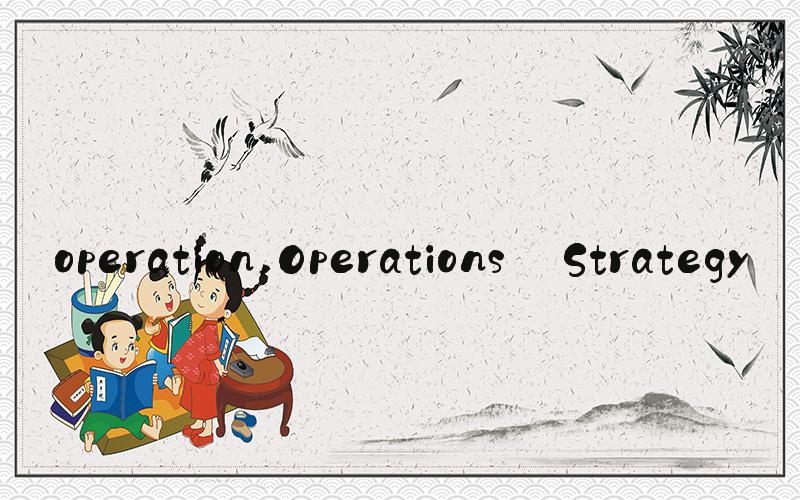 Introduction
IntroductionOperations management is the process of planning, organizing, and controlling the production processes of a company to ensure that the final product or service is of high quality, delivered on time, and cost-efficient. The operations manager is responsible for managing this process, coordinating the work of different departments and making sure that everything runs smoothly.
The operation department is integral to the success of any organization. In this article, we will discuss the various operations management concepts and best practices that organizations use to ensure their operations run smoothly and efficiently.
Operations StrategyOperations strategy is the process of designing and implementing a plan to use the organization's resources to achieve its goals. It involves making decisions about the types of products or services to produce, where to produce them, and how to produce them. A good operations strategy is one that aligns with the company's overall goals, is flexible to adapt to changes, and has a competitive edge over other organizations in the market.
In order to achieve their operations strategy, organizations need to have a clear understanding of their target market, the operational processes required to meet the demands of that market, and the necessary resources and skills to execute those processes. This involves a detailed analysis of internal and external factors such as the company's product or service offerings, the competitive landscape, market trends, and customer needs.
Managing Capacity and QualityCapacity management is the process of ensuring that an organization has the necessary production capacity to meet the demands of the market. This involves balancing the capacity of production resources with demand for products or services. A good capacity management strategy ensures that operations do not become overwhelmed with too much demand or too little supply, leading to customer satisfaction and retention. It also helps with cost control by enabling better utilization of resources.
Quality management involves designing processes, procedures, and systems to ensure that products or services meet or exceed customer expectations. Quality management encompasses all processes, from product design through service delivery, training employees, and providing feedback for continuous improvement. It is a continuous process and helps organizations to minimize defects, improve customer satisfaction, and enhance efficiency.
Inventory ManagementInventory management is the process of tracking and controlling the inventory levels of raw materials, work-in-progress, and finished products. Effective inventory management ensures that the organization has the right stock levels to meet the demand and reduce waste. It also helps reduce operating costs and improve cash flow by minimizing inventory holding costs and decreasing the likelihood of stock-outs.
Inventory management strategies differ for different types of products, such as perishable and non-perishable items. The type of inventory management system used and the frequency of inventory counts depend on the organization's size and complexity, as well as the type of products or services offered. The goal of any inventory management strategy is to minimize inventory holding costs while maximizing customer satisfaction.
Supply Chain ManagementSupply chain management (SCM) is the process of managing the flow of goods and services, information, and finances across the organization's supply chain. This includes suppliers, distributors, retailers, and end-customers. Effective SCM ensures that goods and services are available to customers at the right time, in the right quantity, and at the least cost possible. It also helps to minimize inventory, transportation, and other costs associated with the supply chain.
SCM comprises several processes, including supplier selection and management, procurement, production planning, transportation, warehousing, and delivery. The success of SCM depends on multiple factors, including effective communication between different departments, collaboration with suppliers and customers, and the use of technology to automate processes.
ConclusionIn conclusion, operations management plays a vital role in the success of any organization. Effective operations management requires a clear understanding of the organization's goals, target market, and the processes, systems, and resources required to meet demand. Organizing resources, optimizing supply chains, managing capacity, and ensuring quality are all critical components of effective operations management. A well-executed operations management strategy can provide organizations with a competitive advantage, better efficiency, and increased profitability.
